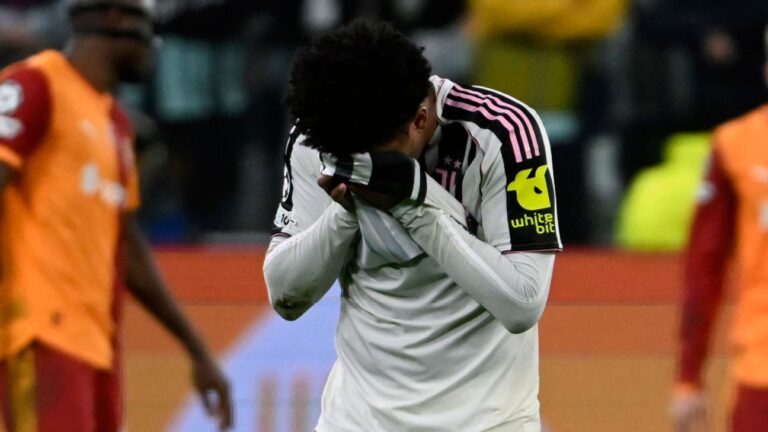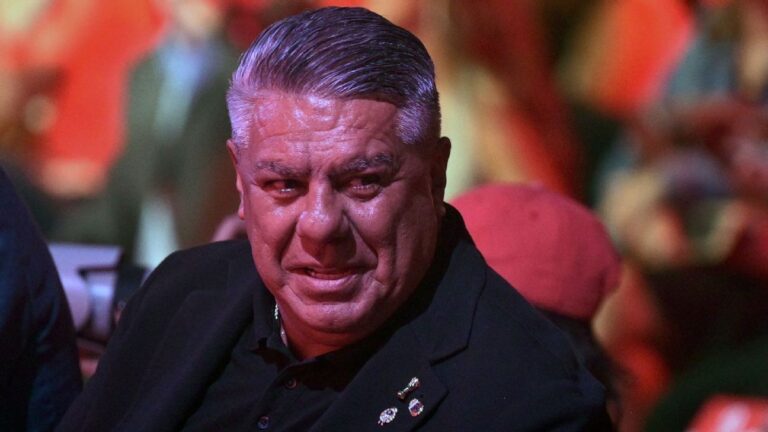It was a big moment when Uruguay’s Darwin Núñez stepped up to take a penalty in the closing stages of Thursday’s World Cup qualifier away to Colombia. Uruguay were losing 2-1 — the same scoreline by which they went down in the previous round, away to Ecuador, meaning they were in danger of a second consecutive defeat. And as the clock ticked down on the third match of the campaign, Nunez had yet to get on the scoresheet.
If Núñez were to miss from the spot, pressure would then build on coach Marcelo Bielsa, who has taken the decision to move away from the veteran strike pair, Luis Suárez and Edinson Cavani. But Nunez nervelessly placed his kick into the top corner, Uruguay came away with a point and therefore emerged emboldened for the most fascinating encounter of the campaign so far: Tuesday’s meeting with Brazil.
– Stream on ESPN+: LaLiga, Bundesliga, more (U.S.)
– Visit ESPN’s South American WCQ homepage
Uruguay and Brazil are, of course, two of the three traditional powers of South American football. Probably the most glorious day in Uruguay’s proud footballing history is the 2-1 win away to Brazil in the final of the 1950 World Cup, the infamous “Maracanazo.” But in World Cup qualifiers, the balance has tipped very much Brazil’s way. In 12 matches, Brazil have won six times, while Uruguay’s only triumph was a 1-0 win in Montevideo in 2001.
Brazil have also been something of a kryptonite for Bielsa. It’s true that, when he was in charge of his native Argentina in that same year of 2001, his team won 2-1 at home to Brazil (after having lost 3-1 away.) But during qualification for the 2010 tournament, Bielsa’s Chile went down 3-0 at home to Brazil and 4-2 away. They met again in the round of 16 at the finals, with Brazil recording a resounding 3-0 win.
A consistent pattern has emerged. Bielsa sends out his sides with their dynamic, high-press, front-foot approach … and they are picked off on the break by one of the world’s most lethal counter-attacking teams.
This is certainly a possible scenario for Tuesday’s game. After the shock of last week’s 1-1 home draw with Venezuela in Cuiaba, Brazil will certainly welcome the chance to play opponents who comes at them and therefore give them more space to exploit. Understandably, the Venezuelans spent most of the game in a deep defensive structure and, with little time on the training field, Brazil lacked the coordination to break them down. New coach Fernando Diniz wants his players grouped around the ball, but on Thursday night the moves never flowed, and it almost appeared as if the Brazil front line were marking themselves.
Against Uruguay, Brazil will certainly have more room in which to work their magic — not least because in the early days of the Bielsa reign, Uruguay are also a team under construction. Admittedly the heat of Barranquilla was a factor last Thursday, but there were times in the second half against Colombia when they were almost absurdly open and in danger of being overrun.
Therefore, Bielsa has some decisions to take before the Brazil game. Barcelona centre back Ronald Araújo was in good form on Thursday and will be a key man in this game. But in front of him, Paris Saint-Germain midfielder Manuel Ugarte was strangely poor and, as Bielsa admitted in the post-match news conference, matters improved once he was replaced by Matías Vecino. The Brazil-based left-back Joaquin Piquerez may also have lost his starting place after being subbed off in the Colombia match for Mathías Olivera.
Whatever the personnel, the overall idea will surely remain the same. Bielsa has never changed his approach during his career, and he’s unlikely to do so now. This brings risks, but also opportunities because so far, Brazil under Diniz have not faced anything remotely like the challenge that Uruguay can throw at them.
Brazil’s fixture list on the road to the 2026 World Cup could not have been easier: home games against Bolívia and Venezuela either side of a visit to Peru. Bolivia were dispatched in style, though subsequent events hint that this might say more about the defects of Bolivia than the strengths of Brazil. Certainly, the last two Brazil performances have been poor and there is a defensive vulnerability that was not present under former coach Tite, who took Brazil to the last two World Cups.
Here’s an interesting statistic. In all of their home games during the 2022 qualifiers — with the obvious caveat that a proposed rematch with Argentina did not go ahead — Brazil conceded only one goal. Already, after what on paper are the two easiest matches, they have let in two. The defensive transition — essentially, their reaction after losing the ball — does not look as efficient, and Uruguay have the manpower to take advantage. They will come at Brazil with two wingers, plus the aggression and mobility of Núñez.
Can Uruguay give their front men a platform by winning the midfield battle? Away to Peru last month, Brazil looked very unconvincing in central midfield, with the players seemingly unsure of how Diniz wants them to move the ball.
Uruguay captain Federico Valverde will hope to take advantage, running the match from the middle with his lung power and range of passing. Had he been born on the other side of the border, Valverde would walk into the Brazil side. On Tuesday, he will represent the best chance a nation of little more than three million people has of pulling off another famous triumph over the giants with more than 200 million.




